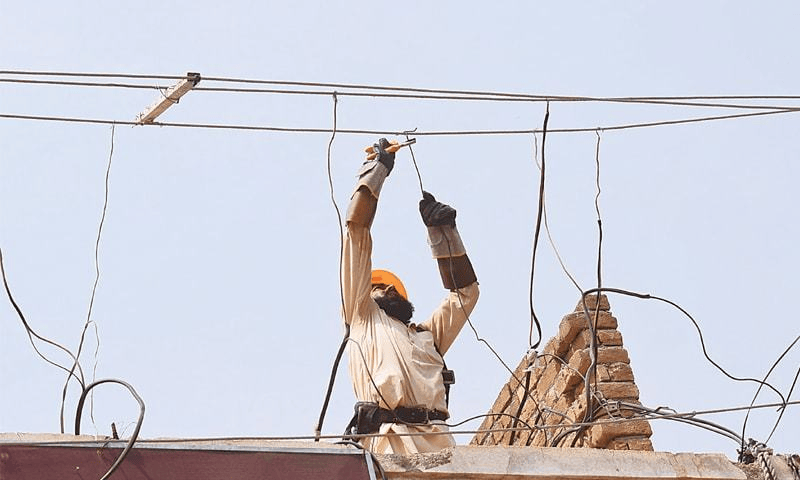- Web
- 2 Hours ago
Pakistan loses Rs470bn to electricity theft: HIT report
-

- Hum News
- Jul 22, 2023

ISLAMABAD: Pakistan’s power sector has suffered a massive loss of Rs470 billion due to electricity theft by more than half a million consumers in the past 14 months, according to a report by Hum Investigation Team.
The report, based on data collected from 10 power distribution companies (DISCOs), reveals that the country’s circular debt has ballooned to Rs2,500 billion due to various factors including theft, high transmission and distribution losses and non-recovery of bills.
Electricity theft is a widespread and chronic problem in Pakistan, where power shortages and load shedding have plagued the nation for decades.
The report by Hum Investigation Team also shows that 20 districts accounted for almost one-fourth of the total loss, with Peshawar topping the list with Rs23.5 billion followed by Lahore and Bannu with Rs13 billion and Rs9 billion respectively.
PESCO, the power distribution company in Khyber Pakhtunkhwa, was the worst performer as it reported huge losses in Charsadda (Rs9 billion), Mardan (Rs8 billion) and other districts.
In Punjab, the largest province by population, Kasur, Multan and Muzaffargarh reported theft amounting to Rs11 billion, Rs6.1 billion and Rs3.7 billion respectively.
In Sindh, the second largest province by population, four districts – Hyderabad, Sukkur, Larkana and Kashmore – incurred losses of almost Rs18 billion.
The HIT report also noted that the scale of power theft was way above the acceptable benchmark set by National Electric Power Regulatory Authority (NEPRA), the regulator of the power sector.
The NEPRA has recently held a hearing of petitions filed by DISCOs for quarterly adjustments and expressed dissatisfaction over their performance.
The regulator questioned why DISCOs were not lifting their full quota of electricity and who was going to pay for it. It also directed DISCOs to provide a complete record of electricity sale-purchase agreements.
The government has taken some steps to curb electricity theft, such as installing smart meters, launching awareness campaigns and setting up channels to report power theft.
However, these measures have not been enough to address the root causes of the problem, such as poor governance, corruption, lack of accountability and political interference.
Read more: Power cuts worsen, shortfall reaches up to 7,000MW
Electricity theft not only affects the financial viability of the power sector but also impacts the society at large.
According to a study by JSTOR, electricity theft is a criminal offence subjecting a person to a prison sentence up to three years or fine up to Rs5,000 or both as per legal provisions of utilities in Pakistan.
However, the enforcement of these laws is weak and ineffective, as many influential individuals and communities are involved in stealing power with the backing of some political parties and government officials.
The Express Tribune reported that the Sindh government has been blamed for not lending enough support to power distribution companies and for protecting power thieves.
Experts have suggested that Pakistan needs to adopt a holistic approach to reform its power sector, which includes improving generation capacity, transmission efficiency, distribution management, revenue collection, regulatory oversight and consumer behaviour.




